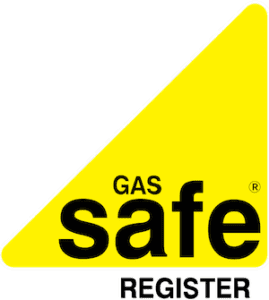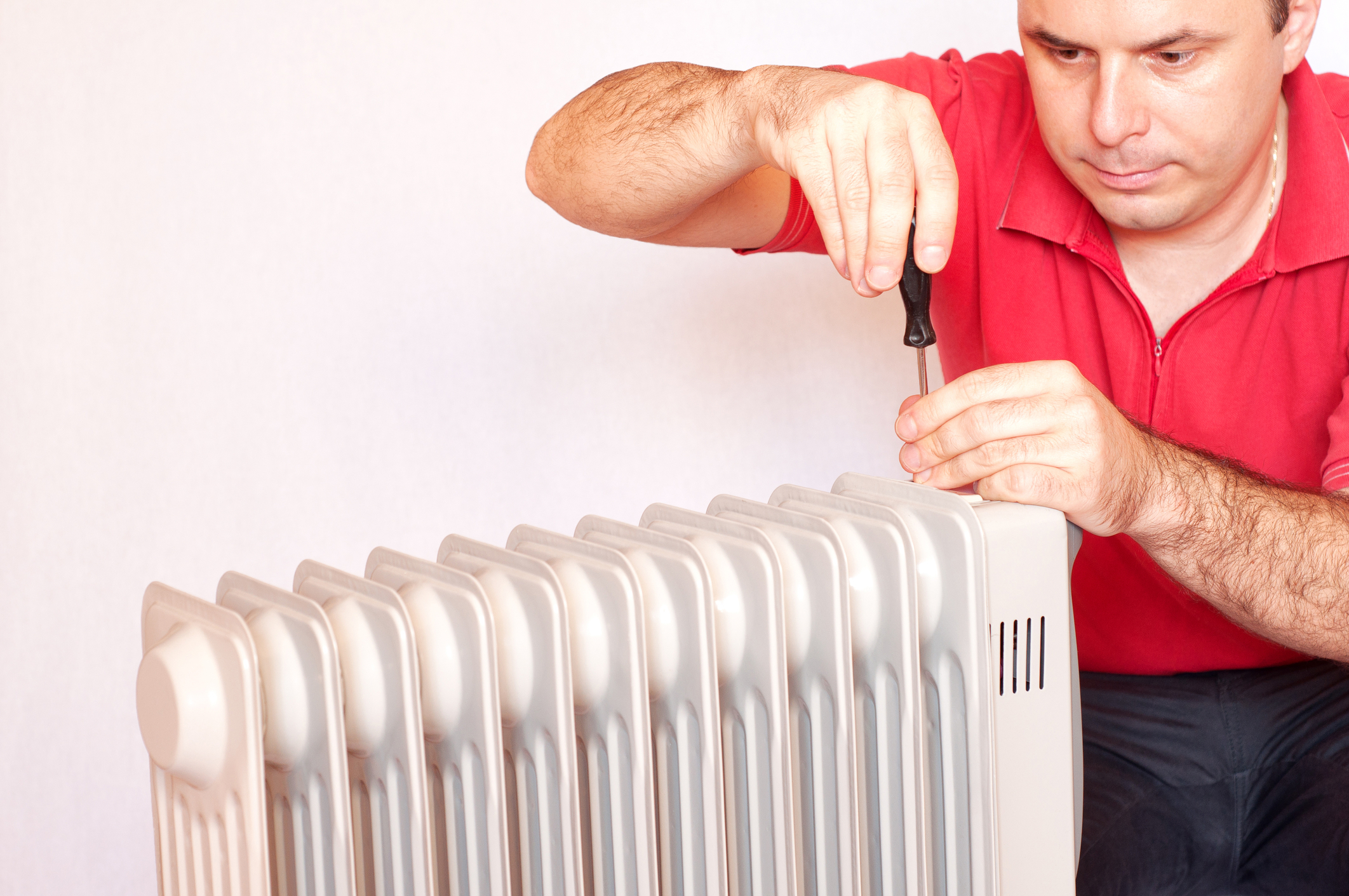Are you dealing with headache-inducing radiator noises that won’t go away? If so, I’m more than willing to bet that you’d do anything to make it stop. Fortunately for you, it doesn’t take much to stop the banging, hissing, hammering, whistling, gurgling, and rattling in your noisy radiator.
Before we get to getting those annoying sounds to stop, though, you should know that noisy radiators are often signals that tell you your radiator is acting up. That, however, is not always the case. So, if you find that your boiler is indeed making some noises, calmly assess the situation first.
If it seems as though your radiator is only making those noises because it is warming up or because of the natural expansion of metal, then you don’t have to worry, as everything should be fine. But, if the noises start sounding or feeling unusual to you, then it’s time to roll up your sleeves and get your hands dirty!
Find the best local plumbers in the UK!
Causes of Noisy Radiators and How To Fix Them
Here are some of the most common causes of a noisy radiator, and some tips on how you can address these issues:
Limescale Buildup (Boiler Kettling)
If your boiler is making a banging noise or a lot of rattling noises, then you may be experiencing limescale buildup in the heat exchanger. This occurrence is also known as “boiler kettling.”
Limescale is the by-product of evaporated hard water, and when it builds up and settles in your central heating system, it will restrict the water flow. This, in turn, will trap moisture inside the heat exchanger, which will then boil, steam, and expand. As a result, your boiler will start producing whistling, banging, or clanking noises.
Fixing this issue is pretty straightforward. Here’s what you should do to remove existing limescale deposit in your central heating system:
- Add a descaler or system cleaner to your feed and expansion tank. Allow the chemical to circulate and make its way around the system.
- Once the descaler has travelled throughout your central heating system, flush it with clean water.
- Add some radiator inhibitor or anti-limescale agent to prevent corrosion and prevent the further formation of limescale.
Aside from stopping your radiator from making any loud banging noises, getting rid of the limescale buildup in your system will improve the lifespan and efficiency of your central heating system.
Air Bubbles
Air bubbles naturally occur in the radiator due to the movement of heated water through the heating pipes and often get trapped inside the piping of your central heating unit, thus causing it to expand and collapse within your radiator pipes. This is what causes a clicking or gurgling noise within your boiler.
To get rid of these bubbles and the annoying sounds in your central heating, you will want to give it a passageway in the form of an opened air vent, which should remain closed unless necessary. Air vents, however, are most effective for radiators on higher or top floors. To get rid of trapped air elsewhere in the system, put an air separator in the piping, as close to the boiler as possible. Together, opened air vents and air separators will get rid of excess air throughout your system.
If your radiator has an automatic bleed valve or air release valve, you may also do this to get rid of excess air in your system and the hissing sound that comes with it.
You may also want to consider relocating your heating pump to the supply side of your boiler, rather than leaving it on the cooler boiler return pipes. By doing this, you are allowing all the energy created by the pump to add pressure to the highest points of your heating system. The high pressure will minimise the occurrence of trapped air within your system.
Sludge
Sometimes, the loud noise in your central heating system may be caused by excessive sludge or debris somewhere within your heating system. Sludge is usually a result of the corrosion in the central heating system. It is often dark brown or black in colour.
Because it causes blockages in your pipework and radiators, it is only natural for sludge to cause a noisy boiler. To get rid of this sludge, and to get rid of the noise that comes with it, you will want to bleed or drain your radiator.
Flushing your system with clean water and adding radiator inhibitor will also help prevent your system from corrosion in the future. Draining your radiator and preventing corrosion from occurring will prevent the formation of unwanted gases in your heating system.
Issues With Your Heating Pipes
If you hear clanging or banging sounds, then you probably have a loose heating pipe or two. Water flowing through unclipped pipes may manifest into vibrations and hammering sounds, which will then result in a noisy radiator, a noisy boiler, and noisy pipes.
You will need to secure such pipes back into their clips to get rid of the vibrating and hammering sounds.
Meanwhile, pipe warping is when metal pipes naturally expand due to the heat. Typically, this would be no problem with such issues aside from the fact that they can be annoying, especially when you’re trying to sleep.
However, if your pipes are passing through wooden joints, these may eventually break due to the tension. Although such occurrences are rare, you will need the help of a professional to fix the issue for you.
Water Leaks
Dripping noises or any sound similar to water coming from your central heating system could mean a leak. If you suspect such leaks, turn off your heating system and water supply immediately. Even one small drip could lead to larger damage, after all.
Once you have turned your heating and water supply off, DO NOT attempt to locate and fix the leak yourself. Call for a Gas Safe heating engineer to do the job for you.
Radiators Are Imbalanced
If there is too much water flowing through a radiator, it may create a rushing or hissing sound. In cases like these, your system will need balancing. You will be able to determine that this is the issue if radiators furthest from the boiler do not get as hot as the others.
You may control the flow of water through each radiator by using a lockshield valve. By using this, you can ensure that hot water is evenly distributed throughout your heating system. This should stop any noises coming from your noisy radiator.
Malfunctioning Immersion Heater or Heating Pump
If you hear a humming noise from your radiator, then you are likely dealing with problems within your immersion heater. To fix this issue, check your output levels and make sure they are correctly set and functioning properly.
However, if the problem persists, there could be an issue with your central heating pump, and the high pump speed could likely be causing the humming in your radiator. In such cases, you will want to turn down the pressure levels and balance your radiator heat output.
The issue could also be something as simple as a loose central heating pump or heat pump fan, both of which you can easily fix by securing them.
Meanwhile, there could also be trapped airlocks in the pump, which you could easily release by bleeding your heating pump. Insert a pump heat screw into the side of the heating pump and turn in halfway to slowly let the air out;
If this still does not work, check to see if you have the filling loop still connected and that you do not have a valve loose.
Connect with the best local plumbers and boiler engineers near you
Frozen Pipes
A frozen condensate pipe due to cold weather may also cause unwanted noises in your central heating system. If this is the problem, addressing this would be easy. Here’s a quick step-by-step on how to thaw a frozen pipe:
- Turn off your boiler.
- Slowly pour warm water onto the surface of your condensate pipe. Do not use boiling water, as this could only lead to more damage.
- Once the blockage has been thawed out, turn on your boiler.
To make sure that this does not happen often, do consider investing in pipework insulation. This will ensure that you will not have to deal with frozen pipes regularly, especially during the cold weather. For other tips
Unable To Get Rid Of The Sound?
If you are dealing with something that is not one of the issues mentioned above, or simply unsure about dealing with the problems that could be behind your noisy central heating system yourself, do not hesitate to reach out to a local Gas Safe heating engineer. You may also reach out to one of Plumbingforce‘s heating experts to do the job for you!





